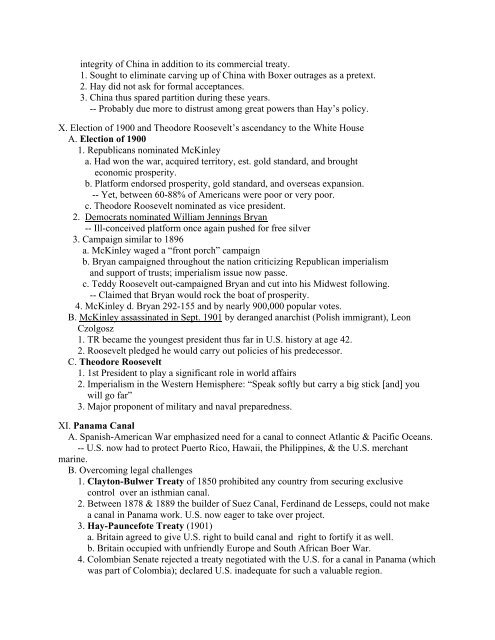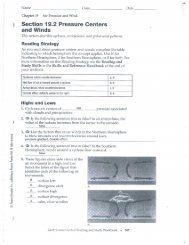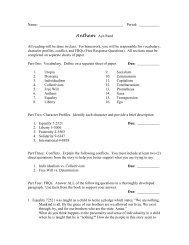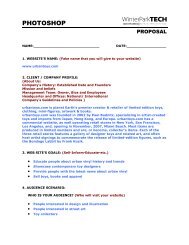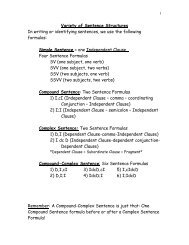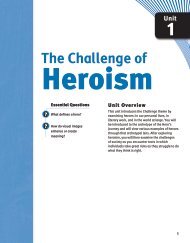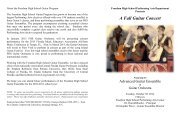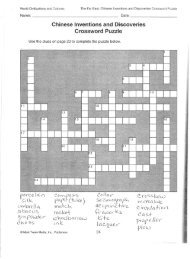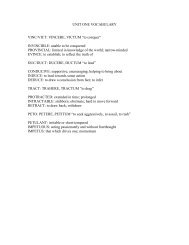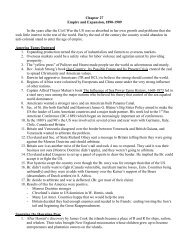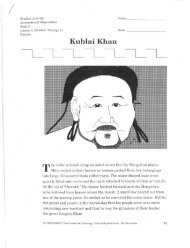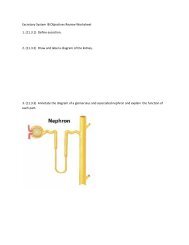Imperialism Notes 1890-1913
Imperialism Notes 1890-1913
Imperialism Notes 1890-1913
Create successful ePaper yourself
Turn your PDF publications into a flip-book with our unique Google optimized e-Paper software.
integrity of China in addition to its commercial treaty.<br />
1. Sought to eliminate carving up of China with Boxer outrages as a pretext.<br />
2. Hay did not ask for formal acceptances.<br />
3. China thus spared partition during these years.<br />
-- Probably due more to distrust among great powers than Hay’s policy.<br />
X. Election of 1900 and Theodore Roosevelt’s ascendancy to the White House<br />
A. Election of 1900<br />
1. Republicans nominated McKinley<br />
a. Had won the war, acquired territory, est. gold standard, and brought<br />
economic prosperity.<br />
b. Platform endorsed prosperity, gold standard, and overseas expansion.<br />
-- Yet, between 60-88% of Americans were poor or very poor.<br />
c. Theodore Roosevelt nominated as vice president.<br />
2. Democrats nominated William Jennings Bryan<br />
-- Ill-conceived platform once again pushed for free silver<br />
3. Campaign similar to 1896<br />
a. McKinley waged a “front porch” campaign<br />
b. Bryan campaigned throughout the nation criticizing Republican imperialism<br />
and support of trusts; imperialism issue now passe.<br />
c. Teddy Roosevelt out-campaigned Bryan and cut into his Midwest following.<br />
-- Claimed that Bryan would rock the boat of prosperity.<br />
4. McKinley d. Bryan 292-155 and by nearly 900,000 popular votes.<br />
B. McKinley assassinated in Sept. 1901 by deranged anarchist (Polish immigrant), Leon<br />
Czolgosz<br />
1. TR became the youngest president thus far in U.S. history at age 42.<br />
2. Roosevelt pledged he would carry out policies of his predecessor.<br />
C. Theodore Roosevelt<br />
1. 1st President to play a significant role in world affairs<br />
2. <strong>Imperialism</strong> in the Western Hemisphere: “Speak softly but carry a big stick [and] you<br />
will go far”<br />
3. Major proponent of military and naval preparedness.<br />
XI. Panama Canal<br />
A. Spanish-American War emphasized need for a canal to connect Atlantic & Pacific Oceans.<br />
-- U.S. now had to protect Puerto Rico, Hawaii, the Philippines, & the U.S. merchant<br />
marine.<br />
B. Overcoming legal challenges<br />
1. Clayton-Bulwer Treaty of 1850 prohibited any country from securing exclusive<br />
control over an isthmian canal.<br />
2. Between 1878 & 1889 the builder of Suez Canal, Ferdinand de Lesseps, could not make<br />
a canal in Panama work. U.S. now eager to take over project.<br />
3. Hay-Pauncefote Treaty (1901)<br />
a. Britain agreed to give U.S. right to build canal and right to fortify it as well.<br />
b. Britain occupied with unfriendly Europe and South African Boer War.<br />
4. Colombian Senate rejected a treaty negotiated with the U.S. for a canal in Panama (which<br />
was part of Colombia); declared U.S. inadequate for such a valuable region.


